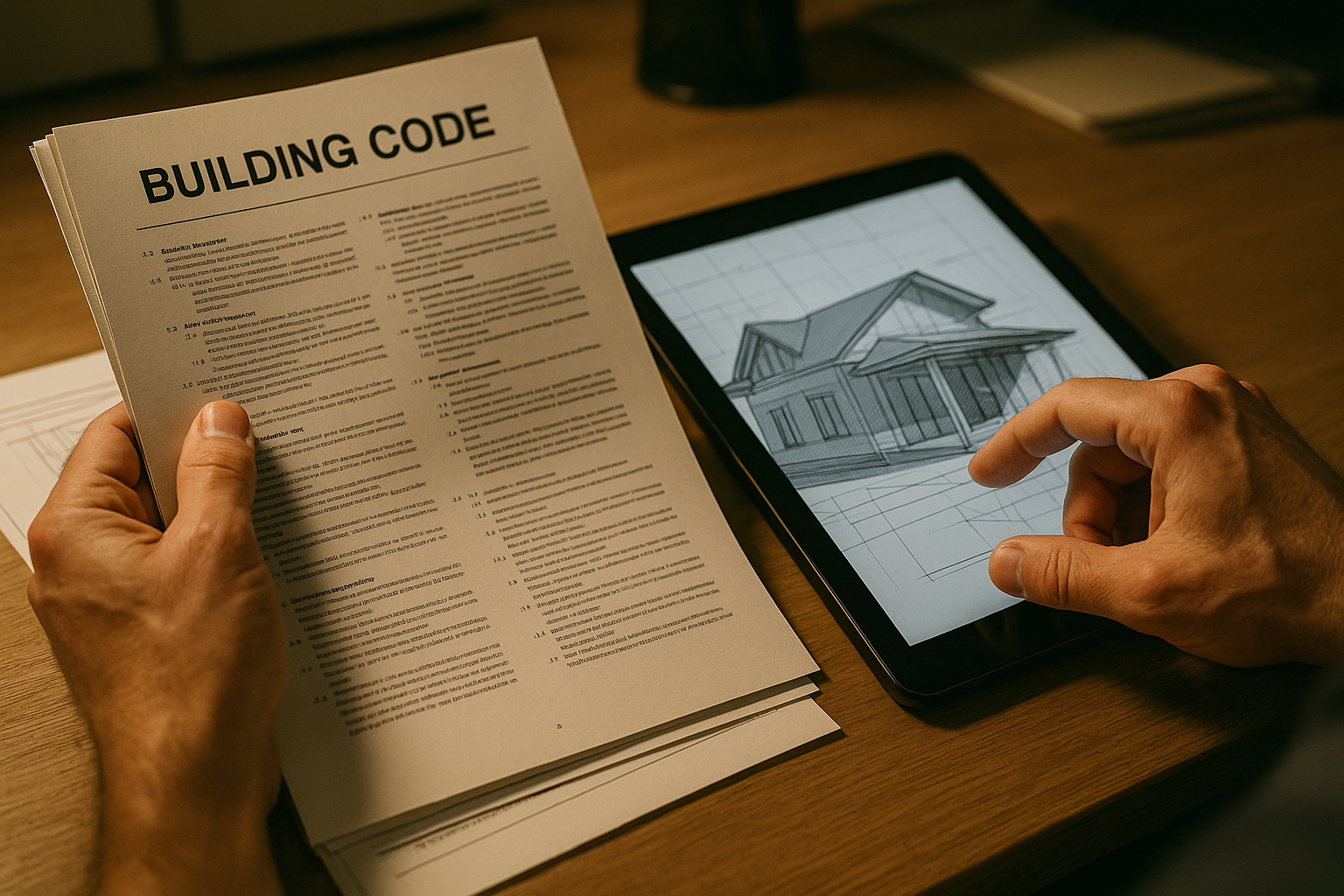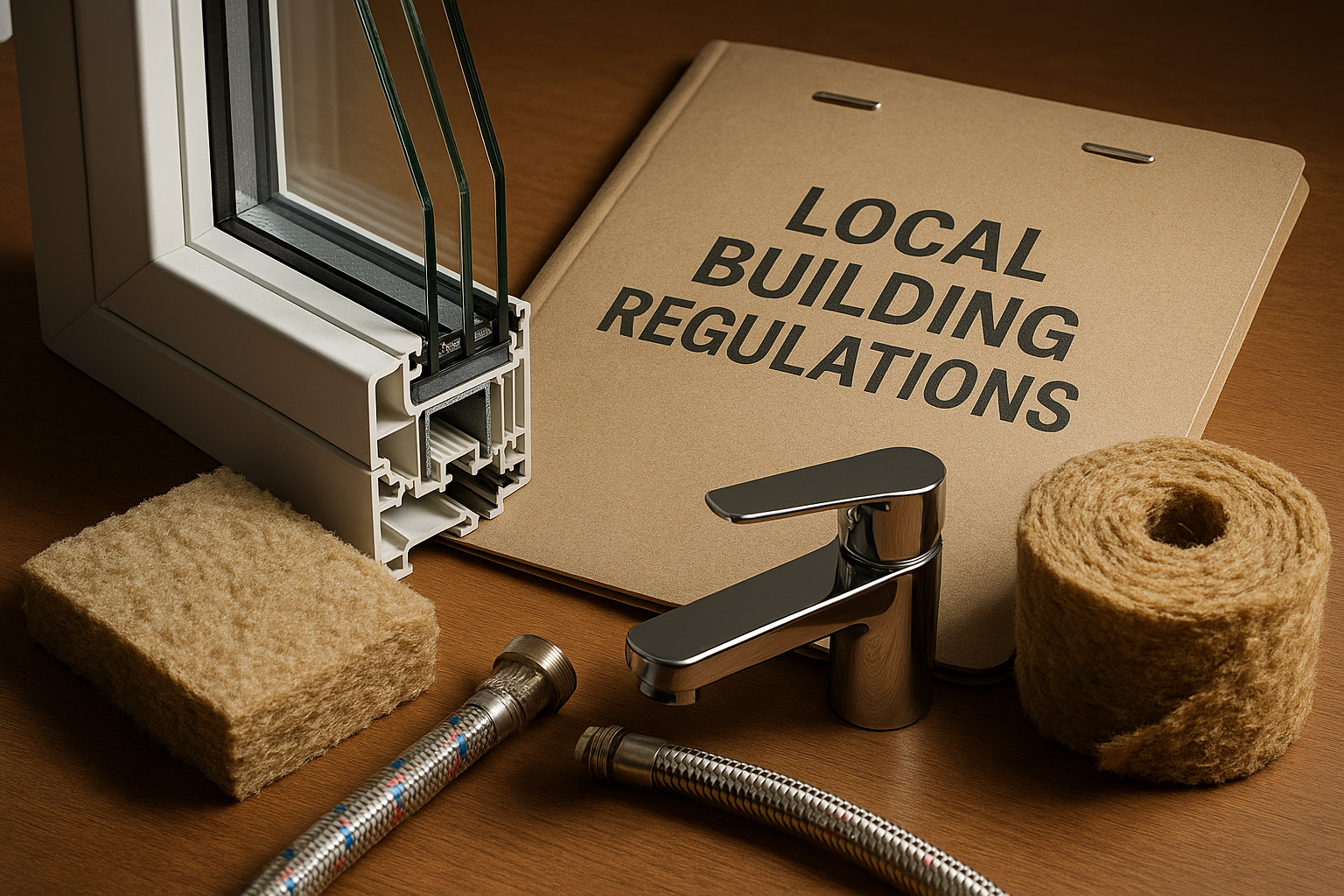Navigating Building Codes Before Starting Your Next Remodel
Why Every Remodel Needs Local Building Code Compliance
Comprehending How Building Codes Influence Remodeling since Day One
How remodeling jobs are impacted by city building codes is underappreciated until the day of schedule delays, rework, or costly fines. Building codes, done right, make buildings safe, energy efficient, and accessible; done wrong, they add complexity to home improvement projects too. Understanding their impact on remodeling jobs prevents wasted time and dollars and causes the investment to pay toward increased long-term equity for your house as well. Paint Heroes has seen up close what building code preparation does for differentiating successful projects from nightmares.
Why We Have Building Codes and What That Does to Homeowners
Remodeling codes aren't haphazard; they're written as a protection for you and your neighbors. From keeping electrical systems from catching fire, to providing proper ventilation and support for the building, codes are the starting point for a remodel that is safe. They also evolve over decades, mirroring contemporary standards for energy use, environmental integrity, and accessibility. As an outcome for the homeowner, a remodel must look nice, but it must perform safely and deliver what the community expects.
The Ripple Effect of Codes on Remodeling Timelines
One of the biggest shocks for home owners is the manner codes extend project completion dates. Permits are submitted, approvals are requested, and inspections are scheduled at more than one interval. Even small projects like adding a deck or remodeling a bathroom can run behind schedule if the right paperwork isn't in order. Understanding the ripple effect allows the home owner to be realistic and budget for hitches along the way, rather than running behind schedule when an inspector holds up the project.
Most Frequent Areas Updated That Have Significant Code Impact
Not all projects are equally impacted by building codes. Some of the locations most sensitive to codes are:
Electric and Plumbing Upgrades: Safety rules apply to prevent danger.
Additions and Expansion: Codes regulate setbacks, loads and structures, and fire safety.
Kitchens and Bathrooms: Energy efficiency, waterproofing, and ventilation are the top priorities.
Windows and Doors: Height, size, and emergency egress requirements apply.
Foreseeing these high-impact areas, the owners can avoid the headache of unexpected compliance issues along the journey.
Permits: The Remodeling Success Gatekeepers
Permits are truly the city or county telling you, “It’s alright to proceed with this project.” Permits or the failure thereof can get your remodel shut down mid-construction—or worse, you can be fined later when you sell your home. Permits can differ based on the size of the project, but even cosmetic remodels can invoke a permit scenario if they affect the plumbing, the electrical, or the structure itself. Having experts such as Paint Heroes on your team means the right permits are handled before the first hammer comes down.
When Audits Create or Destroy Your Advances
Any permitted remodel involves inspection. Inspectors check that the work is up to code at specific junctures, such as framing, wiring, or final finish. If an inspection fails, the construction process grinds to a halt until the issue can be corrected. Even though inspections can be intimidating, they are really protections for your investment. Experienced builders know what inspectors are looking for and build with those standards as priorities, therefore the chance for delay decreases.
Local Variations: Why Your Neighbor’s Remodel May Differ From Yours
Code standards are not consistent—they vary dramatically within towns, counties, and states. A remodel approved for one town can be rejected for another within a few miles' radius. Local climate, population, and historic preservation codes all dictate enforcement of codes. Therefore, homeowners can't rely on “one-size-fits-all” advice. Local experts who are familiar with your jurisdiction are critical for the process of smooth approvals and compliance.
The Secret Costs of Ignoring Building Regulations
Bypassing permits or disregarding codes can be tempting as a shortcut, but it almost always backfires. Fines, legal liability, and forced demolition of non-complying work are just the beginning. Seriously, unpermittted work can nullify insurance claims and dampen your house’s value. Future buyers always want evidence of compliance, and lenders don’t wish to lend on structures with unchecked renovations. In short, disregarding codes now can cost you thousands later on.
How Professionals Facilitate the Process
Reading building codes is intimidating for the busy homeowner. That’s where the experienced contractor steps forward. Informed remodelers understand the codes, as well as are acquainted with permitting departments and inspectors for their city or region. Paint Heroes thinks sifting through building codes is part of our responsibility—not yours. We help our homeowners remain calm, knowing projects move lawfully, safely, and at an expedient pace.
Balancing Creativity with Compliance
Some owners worry codes will suppress their inspiration for design. Creativity and compliance can actually coexist peacefully. The key is working with pros who can stretch designs within parameters without compromising beauty. Whether it’s finding innovative layouts, choosing approved materials, or thinking outside the box for small details, savvy planning enables your dream remodel and facilitates code compliance.
The Future of Remodeling: Codes and Sustainability
Modern codes prioritize sustainability above all else. Energy-efficient windows, reduced-flow plumbing, and sustainable materials aren’t trends—they’re mandates more frequently than not. Their adopters among homeowners enjoy the dividend of lower bills, healthier interiors, and homes that appeal to environmentally conscientious buyers. Far from a barrier, the codes push remodeling toward wiser, greener goals.
Frequent Questions
Must I obtain a permit for every remodeling project?
Not everything you undertake will require a permit, but any project that involves plumbing, electrical, changes of structure, or expansion virtually always will. Cosmetic improvements like painting or floor replacement rarely do.
How long does the permit and inspection process last?
The timing depends on your jurisdiction and the scope of the project. Small permits may only take one week and large remodels can be a few weeks or months for full approval and inspection.
What if I remodel without codes?
You can be liable for fines, forced removal of the work, issues when you sell your house, and even refusal of your insurance claim if damage happens. Compliance guards you legally and economically.
Can the contractor handle permits and inspection for you?
Indeed, upstanding contractors such as Paint Heroes are responsible for obtaining permits and arranging for the inspections, thus sparing you paperwork and anxiety.
Why do codes differ from town to town?
Codes reflect regional priorities such as climate resilience, historic character, or population density. That’s why it is essential to hire a contractor who is experienced with your region.
Remodeling with Confidence
Local building regulations can seem like an obstacle, but they are in place for the purpose of ensuring your safety, your finances, and your investment. When properly prepared and working with professional advice, they need not deter your remodel. Paint Heroes facilitates the process for the homeowner, working through the rules with you and ensuring the project not only comes out beautifully but is done with the highest regard for safety and compliance.
Regional & Localized Remodeling/Painting: Insights That Elevate Every Home
Explore expert guides on how climate, local styles, and regional needs shape smarter remodeling and painting decisions
Best Exterior Paints for Coastal Homes Salt & Humidity Resistant
Painting Tips for Desert Homes in Dry, Sunny Climates
Remodeling Considerations for Cold Weather Regions
Painting Tips for Homes in High-Humidity States
Regional Remodeling Trends: What’s Popular in Seattle vs Chicago
Exterior Colors That Work Best in Rainy Climates

